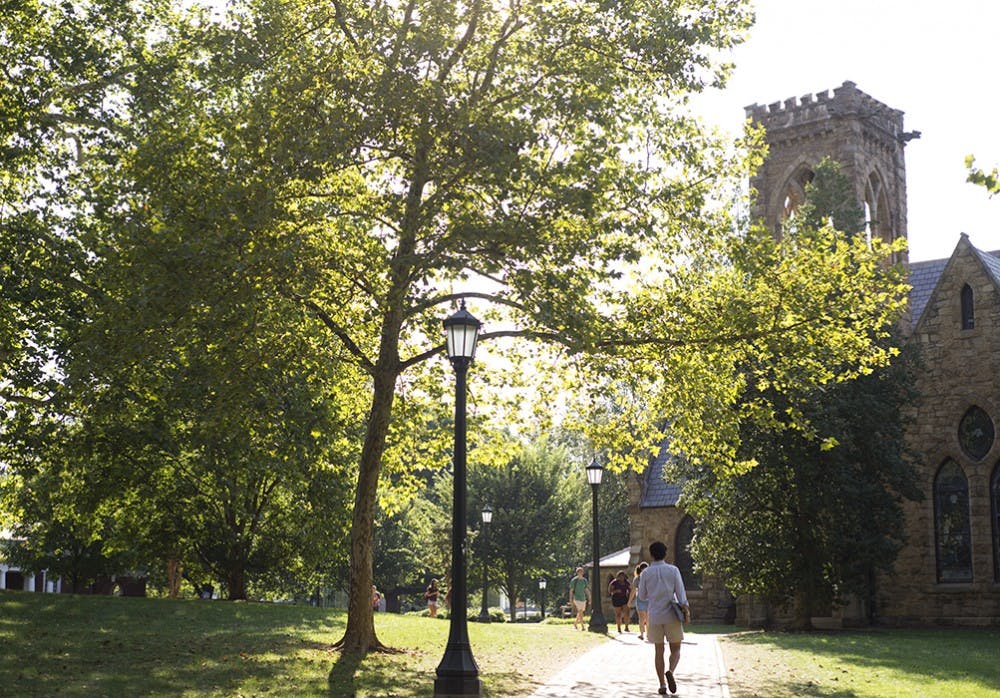With the enrollment period for the spring semester rapidly approaching, students are searching through Lou’s List for interesting classes to fill their shopping carts. Here are four more classes you should consider adding to your queue next week:
1. Breaking Bad: Once Upon a Time with the Pests
Prof. William Little explores the popular television series “Breaking Bad” in this spring semester seminar of 30 students. Having previously taught classes on the gangster-film and Western genres in the Media Studies department, creating this course was the perfect mix for him.
“The show is in some ways kind of a hybrid of the two genres. In fact, the creator of the show has called it a post-modern western,” Little said.
The course focuses on dissecting the show as an example of how the golden age of television has allowed series to be both cinematic and literary.
“I really approach the show from a number of different methodical approaches,” Little said. “All of my instruction is very interdisciplinary … It’s a course that tries to get at some of the issues that are dramatized in the show by using readings that come from psychoanalysis.”
Little emphasizes the idea of the “American Dream” as well as conflicts that arise in facing death, class and religious structures as the themes develop in the show.
“I love teaching this class,” Little said. “I am continually surprised and in awe of how complicated and well-made the show is. I just find myself continually paying tribute to the artistic integrity and imagination of the show creators.”
2. Commercial Law I
Although this class is in the McIntire School of Commerce, this course is aimed and, in fact, encouraged for students of all majors by Prof. Sherri Moore.
“It’s not just about business… It’s also about knowing your individual rights,” Moore said. “And I feel like it’s important for you as employees someday, managers someday, heads of corporations someday, to know what the law is that affects you individually … It’s very different because you don’t need to have a business mind to take this class.”
The course examines constitutional rights, torts and litigation, contracts and property law.
“I try to make it practical. Everything that I cover I try to make sure that it’s something as a student or you in the next 10 or 15 years of your life will need to know that,” Moore said.
Josh Cockream, fourth-year College student and head teaching assistant for the course, said he finds the class very applicable to students, especially in terms of contracts for apartments and jobs.
“I hear about students being like ‘Oh, shoot. I’m so glad we went over that part of the contract [in the contract section of the course], because my landlord has been doing this, which is wrong,’” Cockream said.
3. Scuba Diving
Scuba 1, a one-credit Kinesiology course, offers the opportunity to obtain a lifetime certification in scuba diving. Taught by Dr. Lynn Samuel, the course meets once a week at the North Grounds pool.
“We ask people to be able to swim, but you don’t have to be a strong swimmer, because the equipment does a lot of the work for you in scuba,” Samuel said. “But we do want people to be comfortable [in the water].”
Typically the class begins by meeting in the classroom. The first weeks focus on the basics of the scuba equipment, oceanography and diving destinations. The first classes focus on swimming and snorkeling, and then scuba is added in.
“We work with the equipment and learn different skills — how to share air, how to solve problems in the water, how to remove equipment and put it back on and how to help another diver,” Samuel said.
Later in the semester, the class goes for open-water dives. Students often go to Soapstone Quarry in Schuyler, Virginia.
“What I really love is seeing people go from non-divers to an experienced or at least a comfortable diving student,” Samuel said. “It’s a lot of fun to take them on the open waters and see how much they’ve learned in the course.”
At the end of the course, students are eligible to take a certification exam and to become certified for life.
4. Introduction to the Science and Engineering of Materials
This course, offered in the Engineering School, allows students to explore how everyday materials are manufactured.
Prof. Jerrold Floro completely redesigned his section of this course three years ago, essentially removing lectures from the course and emphasizing guided inquiry, in which students work together through a series of questions based around the material.
“I still taught, but only at the very beginning of class to provide motivation, and then for the rest of the 75 minutes, the students worked together in teams doing what are called guided inquiries,” Floro said.
These guided inquiries are a series of predesigned questions that cover the material in a hands-on manner.
“I am there to evangelize material science engineering, because most people don’t know it’s actually a field,” Floro said. “Everyone has heard of chemical engineering, but very few people have heard of material science. So I get really excited when students actually think ‘Hey, this is actually pretty cool.’”
The new design of the course also includes open-ended team-based projects throughout the semester, along with an eight-minute video at the end of the semester that involves a topic of the student’s choice that involves materials as either a major challenge or a major solution.
“It’s always a great time for me when a student suddenly has an ‘Aha!’ moment,” Floro said. “It’s like, ‘Wow, I didn’t realize that’s how these materials work.’”







